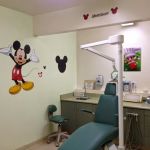- 1-Understanding-Persistent-Toothache-at-Night
- 2-Common-Causes-of-Night-Toothache
- 3-Effective-Treatment-Options-for-Persistent-Night-Toothache
- 4-At-Home-Remedies-When-Pain-Strikes-at-Night
- 5-Professional-Care-and-When-to-See-a-Dentist
- 6-Real-Life-Case-Study-of-Night-Toothache-Treatment
- 7-Preventing-Future-Toothaches-and-Oral-Health-Tips
1. Understanding Persistent Toothache at Night
Toothache is a common dental problem, but when the pain persists specifically at night, it can be especially distressing. Persistent toothache at night often disrupts sleep, affects daily life, and signals an underlying dental issue that needs prompt attention. Unlike daytime pain, nighttime toothache tends to feel more intense because lying down increases blood flow to the head, amplifying nerve sensitivity.
Understanding why toothache worsens at night is key to finding effective relief. The persistent nature of this pain often points to deep dental problems such as infections, cavities, or inflammation. When untreated, it may lead to severe complications.
Why Nighttime Pain Feels Different
At night, the absence of distractions allows pain to feel sharper and more focused. Additionally, lying flat increases pressure in the head and can worsen inflammation. This biological response explains why many patients report that their toothache is bearable during the day but unbearable after bedtime.
2. Common Causes of Night Toothache
Persistent toothache at night can stem from various dental issues, often signaling serious conditions that should not be ignored. Identifying the root cause helps guide effective treatment.
Tooth Decay and Cavities
Cavities that penetrate the enamel and reach the dentin layer expose nerve endings, triggering pain that often intensifies at night. The decay allows bacteria to irritate the nerve, causing throbbing sensations.
Dental Abscess
A dental abscess is an infection around the tooth root or gums. The buildup of pus and pressure leads to severe, persistent pain that usually worsens during rest and can spread to the jaw and face.
Cracked Tooth or Damaged Filling
Micro-cracks or compromised dental restorations can expose sensitive nerve endings to temperature changes and pressure, resulting in pain that flares up, especially when lying down.
Gum Disease and Inflammation
Advanced gum disease can cause the surrounding tissues to become inflamed and tender, leading to discomfort that is more noticeable at night.
3. Effective Treatment Options for Persistent Night Toothache
Treating persistent toothache at night requires a multi-layered approach depending on the cause and severity of the problem. Here we explore both immediate and long-term solutions.
Immediate Pain Management
Over-the-counter painkillers such as ibuprofen or acetaminophen can temporarily reduce inflammation and alleviate pain. However, these are only short-term fixes and should not replace professional treatment.
Professional Dental Treatments
Root canal therapy is often necessary if the pain originates from an infected pulp. This procedure removes the infected tissue and seals the tooth, providing lasting relief.
For cavities, fillings or crowns restore tooth integrity and stop further damage. In cases of severe abscess, antibiotics may be prescribed alongside drainage or extraction.
Using Night Guards for Bruxism
Teeth grinding (bruxism) is another cause of nighttime tooth pain. A custom-fitted night guard can protect teeth from excessive wear and reduce associated pain.
4. At-Home Remedies When Pain Strikes at Night
While professional care is essential, some home remedies can ease symptoms temporarily until a dentist visit is possible.
Saltwater Rinse
A warm saltwater rinse helps reduce inflammation and cleanse the area, soothing irritated gums and reducing bacteria.
Cold Compress
Applying a cold pack on the cheek near the painful tooth can numb the area and reduce swelling.
Avoid Certain Foods and Habits
Avoid sugary, hot, or cold foods that might exacerbate the pain. Reducing caffeine and alcohol intake before bedtime can also minimize discomfort.
5. Professional Care and When to See a Dentist
Persistent toothache at night should never be ignored. Seeking professional dental care promptly is crucial to prevent worsening of the condition.
Signs You Need Immediate Dental Attention
If your toothache is accompanied by swelling, fever, or difficulty swallowing, these symptoms indicate a serious infection requiring urgent care.
Regular Dental Check-ups
Routine exams can catch problems early before pain becomes persistent. Dentistry Toothtruth offers expert consultations and tailored treatment plans to address night toothaches effectively.
6. Real-Life Case Study of Night Toothache Treatment
Consider Sarah, a 32-year-old who suffered from persistent toothache every night for two weeks. Initially, she ignored the discomfort, hoping it would subside. However, the pain escalated, disrupting her sleep and daily activities.
After visiting her dentist through recommendations from Dentistry Toothtruth, she was diagnosed with a dental abscess. The treatment involved antibiotics followed by a root canal. Post-treatment, Sarah reported complete relief and emphasized how timely professional care prevented more severe complications.
This story highlights the importance of not delaying treatment and trusting expert dental services to resolve persistent nighttime tooth pain.
7. Preventing Future Toothaches and Oral Health Tips
Prevention is always better than cure. Maintaining good oral hygiene and regular dental visits are the foundation of avoiding persistent toothache at night.
Daily Oral Care Routine
Brushing twice daily with fluoride toothpaste, flossing, and using antiseptic mouthwash keeps bacteria in check and prevents decay and gum disease.
Healthy Lifestyle Choices
Limiting sugar intake, avoiding tobacco, and maintaining a balanced diet strengthen teeth and gums, reducing risk factors for toothache.
Professional Advice and Support
For personalized oral health advice and products that suit your needs, Dentistry Toothtruth provides expert guidance, helping you protect your smile and avoid painful nighttime toothaches.







 Comprehensive Dental Group4.0 (193 review)
Comprehensive Dental Group4.0 (193 review) Community Health Center of Snohomish County - Everett-North Clinic4.0 (960 review)
Community Health Center of Snohomish County - Everett-North Clinic4.0 (960 review) Dr. Daniel S. Fife, DDS4.0 (31 review)
Dr. Daniel S. Fife, DDS4.0 (31 review) Schnierow Dental Care3.0 (177 review)
Schnierow Dental Care3.0 (177 review) Jin Hahn, DMD4.0 (18 review)
Jin Hahn, DMD4.0 (18 review) Blue Sky Dental4.0 (9 review)
Blue Sky Dental4.0 (9 review) The Importance of Oral Health Education During Pregnancy for a Healthy Pregnancy
The Importance of Oral Health Education During Pregnancy for a Healthy Pregnancy Best Tips for Brushing Your Teeth Properly for Healthy Gums: Essential Techniques for Oral Health
Best Tips for Brushing Your Teeth Properly for Healthy Gums: Essential Techniques for Oral Health Why Skipping Dental Checkups Can Lead to Bigger Oral Health Problems
Why Skipping Dental Checkups Can Lead to Bigger Oral Health Problems Advantages of Porcelain Dental Restorations
Advantages of Porcelain Dental Restorations How Can Diabetes Cause Tooth and Gum Problems? Preventing and Managing Oral Health Issues
How Can Diabetes Cause Tooth and Gum Problems? Preventing and Managing Oral Health Issues Healthy Habits for Promoting Good Oral Health and Hygiene: Tips for a Healthy Smile
Healthy Habits for Promoting Good Oral Health and Hygiene: Tips for a Healthy Smile